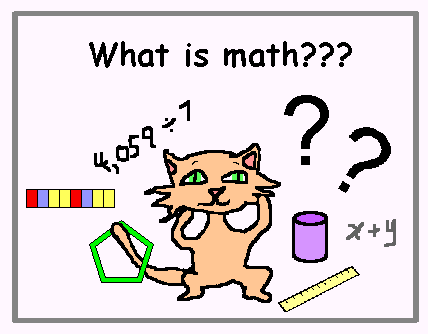What is mathematics?
Before today ’s input my basic understanding of mathematics was the ability to use numbers to solve a problem or equation. However, maths is so much more than that. Maths involves many different key elements such as shape, size, patterns, and more which
’s input my basic understanding of mathematics was the ability to use numbers to solve a problem or equation. However, maths is so much more than that. Maths involves many different key elements such as shape, size, patterns, and more which
we often overlook due to our fascination with the assumption that maths can only involve numbers.
Marcus du Satoy’s article in ‘The Guardian’ opens our eyes to the fact that maths is much more than what we perceive it to be. There is more to maths than the basic grammar and vocabulary of numbers we are taught in school and that techniques regarded as ‘core skills’ can limit our enjoyment and discovery of what maths really is. Maths to me was always quite mundane  throughout school. We sat down, opened our textbooks and listened to the teacher for some of the lesson and then were suddenly expected to have grasped the new concept and begin working through questions simply by listening and watching someone else solve a problem. Du Satoy’s article makes me question why did we never challenge maths in school? When told a rule for mathematics as a class we just accepted that that was the rule and there could be no other way. We would never question why. Perhaps this dulled our perception of maths in school too, the fact that we were taught not to question what we were told leaving us very unmotivated and uninspired.
throughout school. We sat down, opened our textbooks and listened to the teacher for some of the lesson and then were suddenly expected to have grasped the new concept and begin working through questions simply by listening and watching someone else solve a problem. Du Satoy’s article makes me question why did we never challenge maths in school? When told a rule for mathematics as a class we just accepted that that was the rule and there could be no other way. We would never question why. Perhaps this dulled our perception of maths in school too, the fact that we were taught not to question what we were told leaving us very unmotivated and uninspired.
In the article du Satoy refers to a book by Hardy which states: “A mathematician, like a painter or a poet, is a maker of patterns. If his patterns are more permanent than theirs, it is because they are made with ideas.” He suggests that maths is more interconnected with creative arts, and other curriculum areas than often we believe. In schools we often see cross-curricular working but maths is repeatedly pushed to the side. Satoy argues that there is so much history and discovery in mathe matics that is often left out of the “unadventurous curriculum” when in reality the discovery of fundamental mathematical principles were crucial in key historical moments. Without maths the Egyptians would not know how much stone was going to be required to build the pyramids in Giza. I had never thought of the endless creations that would have never happened if it wasn’t for the art of mathematics. I must admit that throughout High School I was always left wondering “when am I ever going to use maths?” Maths is all around us, without a basic understanding of mathematics we would struggle to survive everyday life. Mathematics opens doors to discovery and is full of potential breakthroughs and opportunities that could make the difference to the world.
matics that is often left out of the “unadventurous curriculum” when in reality the discovery of fundamental mathematical principles were crucial in key historical moments. Without maths the Egyptians would not know how much stone was going to be required to build the pyramids in Giza. I had never thought of the endless creations that would have never happened if it wasn’t for the art of mathematics. I must admit that throughout High School I was always left wondering “when am I ever going to use maths?” Maths is all around us, without a basic understanding of mathematics we would struggle to survive everyday life. Mathematics opens doors to discovery and is full of potential breakthroughs and opportunities that could make the difference to the world.

